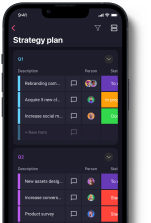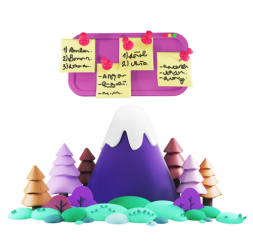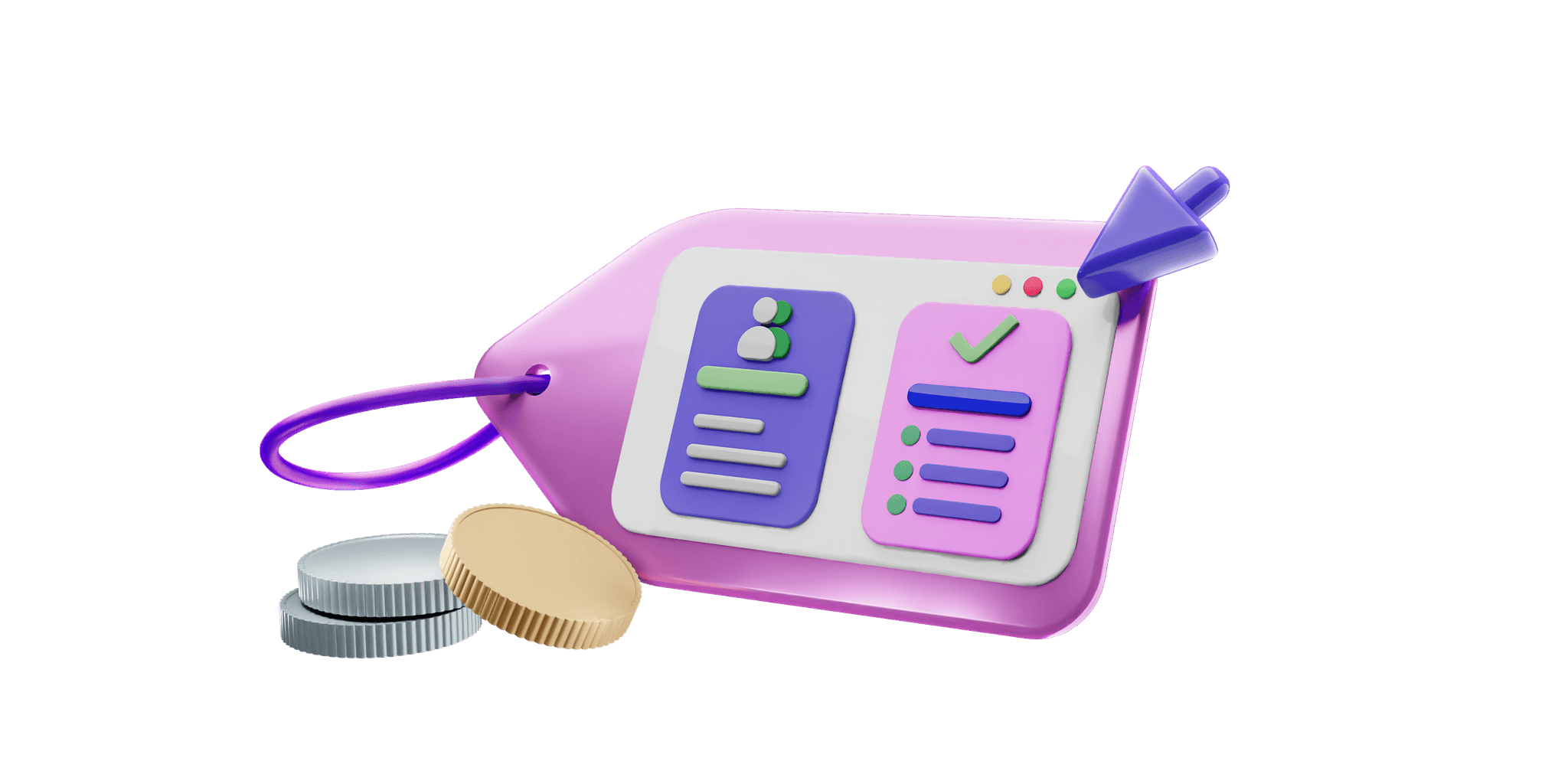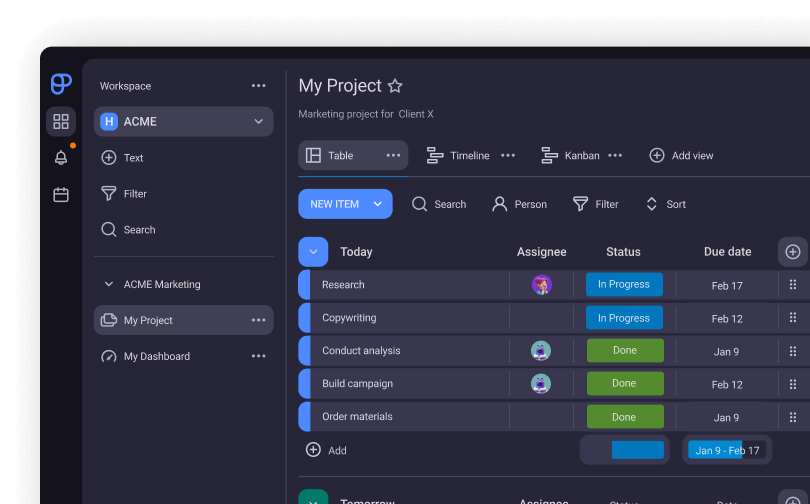Notion Pricing in 2024: Plans and Feature Overview
Notion is a multi-purpose software solution that combines note-taking, task management, knowledge organization, and project management into a single, unified platform for individuals, small teams, and companies.
Let’s explore Notion’s pricing plans and the platform’s free and paid features in more detail.

Table of Contents
How much does Notion cost?
There are 4 Notion pricing plans in total:
- Free,
- Plus,
- Business, and
- Enterprise.
Here’s a quick comparison of Notion’s monthly and yearly fees.
| Notion price | Monthly price | Yearly price |
|---|---|---|
| Free | $0 | $0 |
| Plus | $12/user/month | $10/user/month |
| Business | $18/user/month | $15/user/month |
| Enterprise | POA | POA |
Notion also has an optional add-on, Notion AI, which costs $8/user/month when billed annually, or $10/user/month when billed monthly.
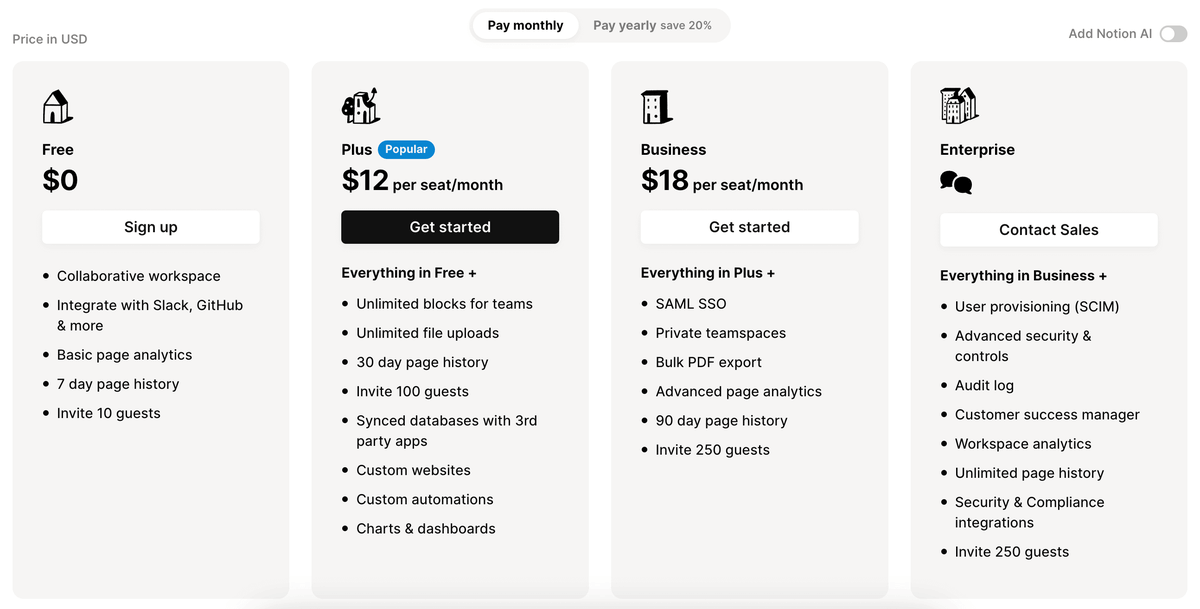
💡 Plaky Pro Tip
If you’re a Mac fan, you’ll be happy to know that Notion is one of the best PM tools available for Mac users today. Check out the full list here:
Is Notion 100% free?
Yes, Notion is 100% free if you choose Notion’s free plan. In case you require additional work organization and task management features, you’ll have to opt for one of its paid plans:
- Plus — $10/user/month (billed annually),
- Business — $15/user/month (billed annually), or
- Enterprise – POA.
You can also add Notion AI to any of the plans, including the free plan. Notion’s AI pricing starts at $8/member/month (billed annually).
Is Notion free for students?
Yes, Notion has a free Education plan for individual students and educators at accredited colleges or universities. You need a valid school email address to sign up.
Verified student-led organizations at select higher institutions are also eligible for free Plus plans.
Is Notion free for nonprofits?
No, Notion is not free for nonprofit organizations. A 50% discount is, however, available for the Plus plan.
Notion’s pricing plans explained
Let’s delve into Notion’s pricing plans and get a closer look at their distinct feature sets.
Notion Free plan
Notion’s Free plan is an excellent choice for individuals seeking to manage household tasks and personal endeavors, or freelancers looking to organize their tasks and projects.
Attention-worthy features of Notion’s free plan include:
- Unlimited pages and blocks for individual users,
- Unlimited storage,
- Basic page analytics,
- Access to Notion Calendar,
- 7-day page version history,
- Open and closed teamspaces, and
- Basic automations.
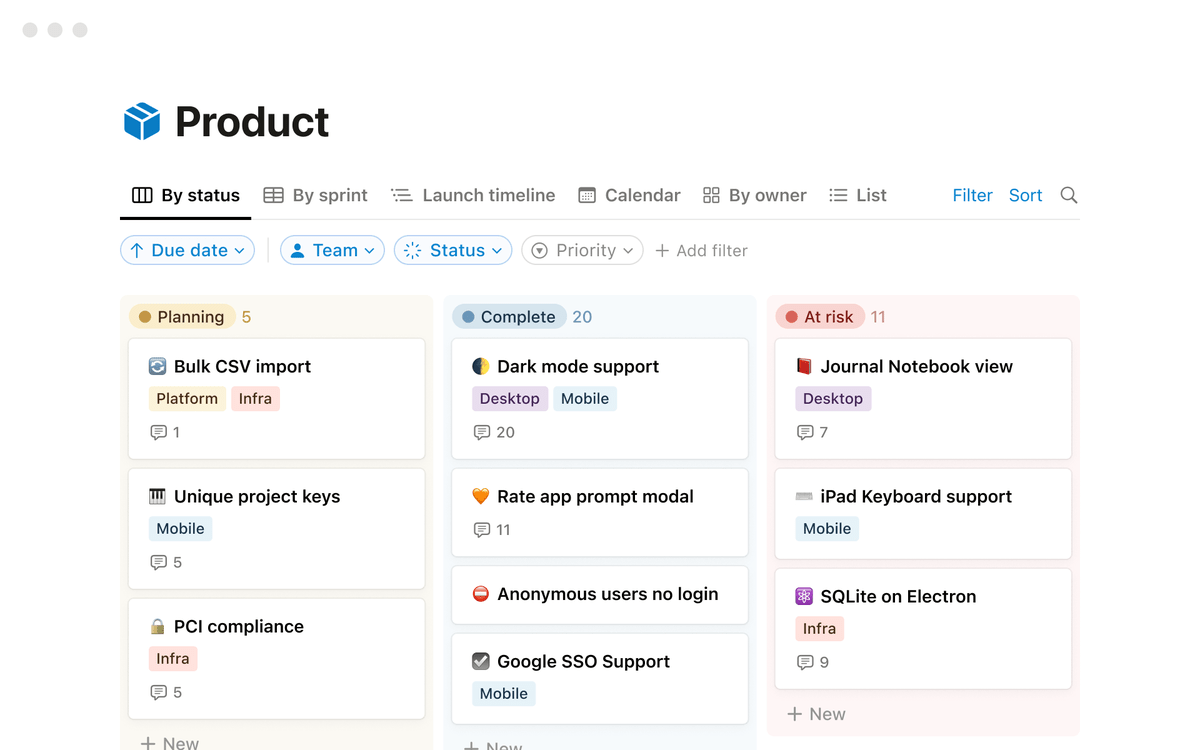
Understandably, the Free plan may not fully meet the needs of larger teams or businesses with more complex project requirements due to a lack of various privacy and security options and the following limitations:
- 10 guest collaborators only,
- Only 1 synced database,
- Limited block trial for teams with 2+ members,
- 5 MB cap on file size, and
- 100 row limit for databases.
Because of this, users may feel limited by the Free plan and pressured to upgrade their plan to Plus, even though they don’t need additional features.
Notion Plus plan
Notion’s Plus plan is ideal for small teams or groups seeking improved collaboration and organizational features.
This plan is a step up from the free plan and includes several new features and upgrades, such as:
- Unlimited blocks for teams,
- Unlimited synced databases and 20,000 row cap,
- No file size limit,
- 100 guest collaborators,
- 30-day page history,
- Custom notion.site domains for publishing web pages,
- Custom automations in databases, and
- Priority support.
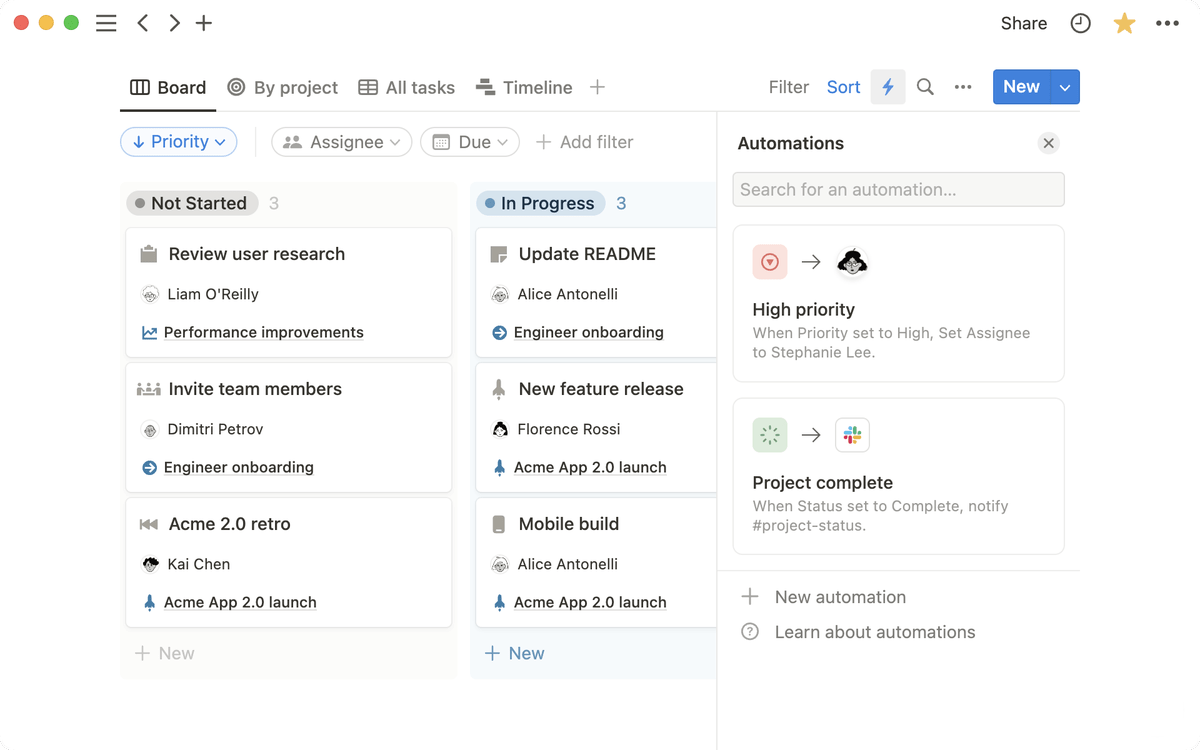
Overall, the Notion Plus plan is a balanced choice for enhancing project collaboration and organization within small teams. However, it may not meet the needs of larger businesses with greater security and privacy needs as it’s missing:
- Enhanced security with SAML Sign-On (SSO) and user provisioning (SCIM),
- Workspace analytics, granular admin roles, and audit logs,
- Dedicated success managers,
- Private teamspaces, and
- Advanced teamspace permissions.
The Notion Plus plan costs $10/user/month when paid annually, totaling $120 a year for each user. If paid monthly, the price rises to $12/user/month, which comes up to $144/user/year. These prices don’t include the Notion AI add-on.
New teams can sign up for a free trial of the Plus plan and test out all its features for up to 30 days.
💡 Plaky Pro Tip
Learn about the effects of poor work organization and get exclusive tips on how to stay organized at work below:
Notion Business plan
The Business plan is designed for companies seeking to unify multiple teams and tools within Notion.
This comprehensive plan encompasses everything in the Plus plan and a few other additional features and upgrades, such as:
- 90-day page history,
- Advanced page analytics,
- 250 guest collaborators,
- Private teamspaces,
- SAML Single Sign-On, and
- Workspace PDF exports.
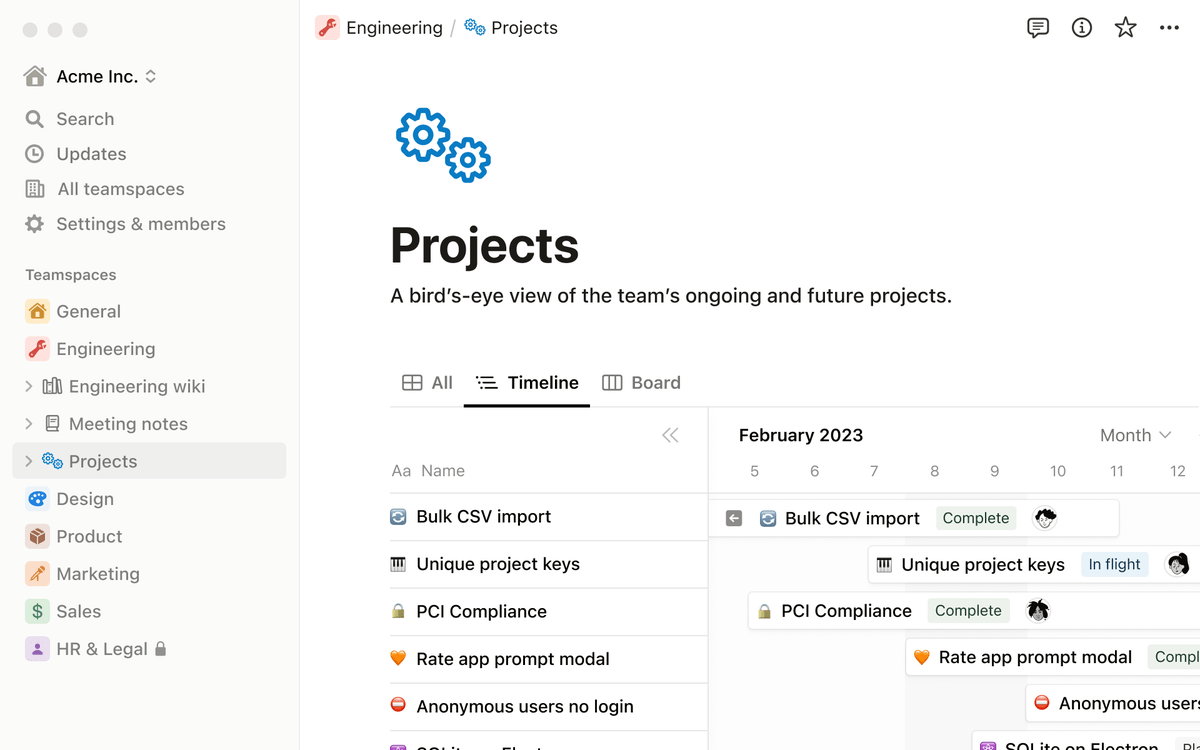
Despite this diverse set of powerful functionalities, the Business plan still fails to provide key security features, such as granular admin roles and audit log.
Moreover, Business plan users still don’t get access to dedicated customer success managers.
The Notion Business plan costs $15/user/month when paid annually, totaling $180/user/year. If paid monthly, the price rises to $18/user/month, meaning it costs $216/user/year. The Notion AI add-on is not included in these prices.
The trial of the Business plan and its features is only available upon request.
Notion Enterprise plan
Notion’s Enterprise plan is designed to meet the specific needs of larger organizations. It enhances security measures and provides advanced features that streamline workflows, collaboration, and project management.
The most notable features and upgrades offered with this plan include:
- Unlimited page history,
- Advanced teamspace permissions,
- Advanced workspace and teamspace security controls,
- Managed users dashboard and controls,
- Guest invite requests,
- Workspace analytics,
- Audit logs,
- Granular admin roles,
- User provisioning (SCIM),
- Admin content search,
- Domain management, and
- Workspace consolidation.
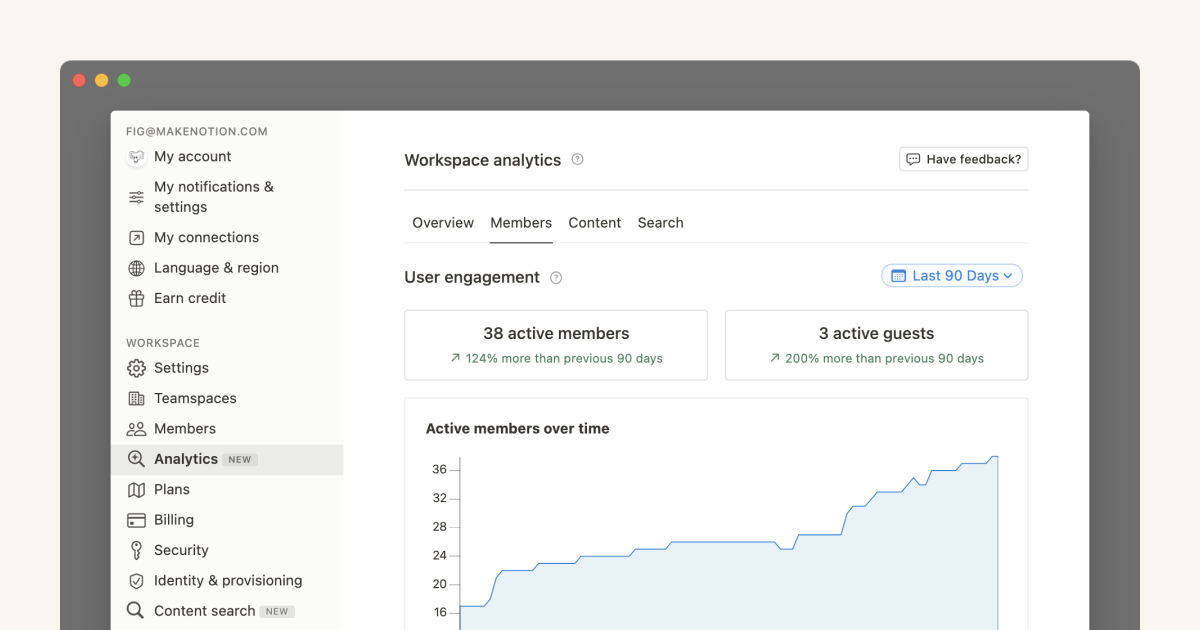
Notion’s most expensive plan also includes security and compliance integrations, as well as HIPAA compliance.
Enterprise users are also the only ones with access to dedicated customer success managers.
Optional add-on: Notion AI
Notion AI is an optional add-on that enhances productivity and writing quality within the Notion workspace using artificial intelligence. The add-on has 3 components:
- Q&A — get information about your workspace and tasks instantly,
- Autofill — automate tasks, e.g., summarizing meeting notes and generating action items, and
- Writer — get writing assistance and access to AI-generated content.
The add-on is not included in the free or paid plans and costs an additional $10/user/month, amounting to $120 annually, or $8/user/month when paying yearly, adding up to $96/user/year.
Is Notion the right option for you?
Notion offers a range of advanced features and benefits that make it a valuable choice for individuals and teams looking to maximize their productivity and organization.
However, whether Notion is worth paying for will depend on your specific needs and preferences.
Based on our research, the most widespread positive feedback from the average Notion user centers around the software’s:
- Versatility — the platform adapts to a wide range of use cases, from personal note-taking to collaborative project management, making it one of the best daily planner apps, and
- Customization options — users can tailor their workspaces to their unique needs with ease.
Users also often commend Notion’s:
- User-friendly interface,
- Real-time collaboration features,
- Cross-platform compatibility, and
- Wide range of deployment options (web, mobile, desktop).
That said, Notion isn’t without fault. Though experiences vary, some of the drawbacks users generally mention include:
- The platform’s steep learning curve,
- Pricing, especially for larger teams,
- No true offline mode,
- Performance issues that arise with larger databases, and
- Limited functionalities of the mobile app.
💡 Plaky Pro Tip
How does Notion compare to similar task and project management platforms? Learn more about it in the following comparisons:
Need an easy-to-use Notion alternative? Try Plaky instead
If you like Notion’s extensive features but find its pricing to be too high, you should give Plaky a try.
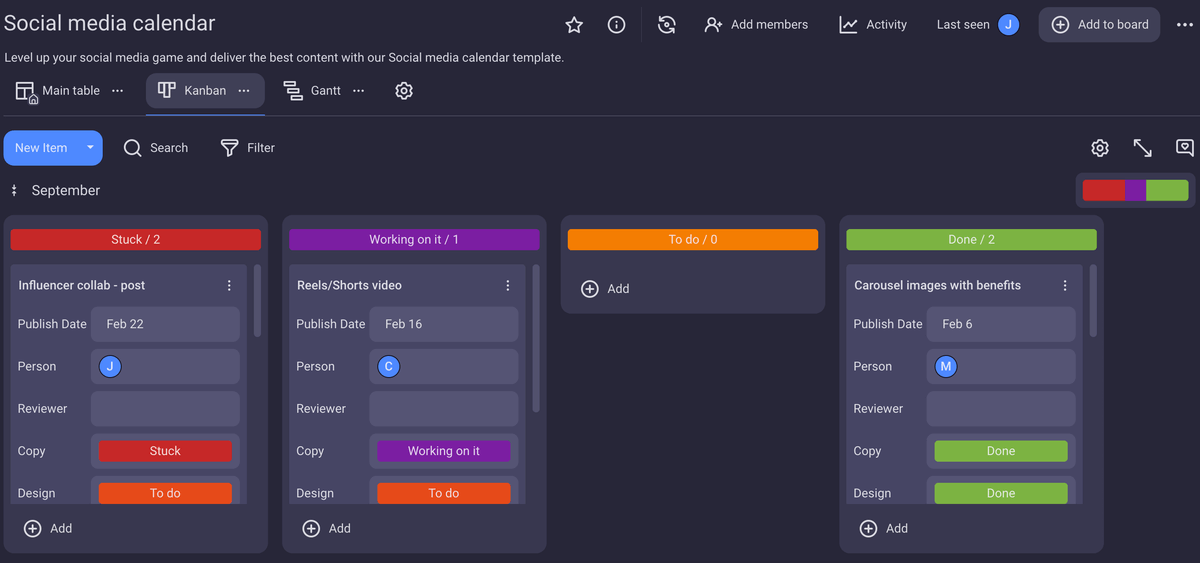
Plaky is a flexible, visually appealing, and user-friendly project management tool with a robust free plan without any restrictions on the number of:
- Spaces,
- Project boards,
- Users,
- Items, and
- Files.
In Plaky, you can streamline project workflows with ease and promote seamless collaboration among project team members.
You also have the option to start from scratch or utilize pre-designed project management templates tailored to specific industries like:
- Software development,
- Marketing,
- Sales,
- HR, and more.
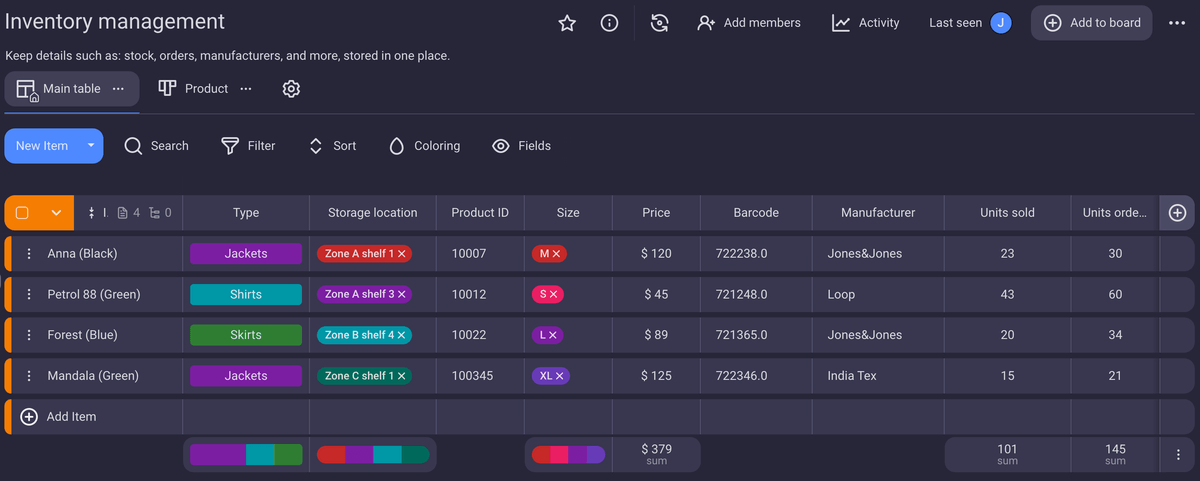
With its highly customizable features, Plaky can also adapt to the needs of different teams and industries, offering ways to arrange and visualize project data so that it’s both easily accessible and manageable.
Teams and organizations that want to further invest in project excellence and upgrade for more features can choose between 2 Plaky paid plans — Plaky Pro and Plaky Enterprise.
💡 Plaky Pro Tip
Wondering how Plaky came to be? Learn all about Plaky’s development in this article:
Notion vs. Plaky comparison
Plaky and Notion — while both valuable in the field of project management and collaboration — have notable distinctions.
Note-taking vs. project management
Notion is an adaptable all-in-one workspace, covering note-taking, knowledge management, and task management. Its versatility allows for creative customization, serving a broad spectrum of use cases.
On the other hand, Plaky is primarily tailored for project and task management, but it can also serve as effective team collaboration software. In comparison to Notion, you can use Plaky to centralize project information and collaborate efficiently on projects — for a much lower fee.
💡 Plaky Pro Tip
What are the best team management tools for boosting team collaboration and productivity? Learn in the article below:
Ease of use and visual design
Plaky offers structured project management with a simple interface and robust task and board management features, including:
- Custom boards and tasks,
- Custom fields (e.g., Status and Timeline), and
- Countless tailored views (Table, Kanban, or Gantt) for effective work visualization.
Though Notion is similarly adaptable, its flexibility and extensive feature set may actually pose a steeper learning curve.
As for their visual presentation, Plaky boasts a more contemporary and streamlined design compared to Notion. However, both tools come with dark and light modes.
Note-sharing vs. collaboration
Plaky emphasizes collaboration with features like:
- File sharing,
- Real-time team communication via comments and mentions, and
- Instant notifications.
Notion also supports collaboration, but with a broader focus, offering features such as:
- Note-sharing,
- Document collaboration, and
- Knowledge sharing.
💡 Plaky Pro Tip
Why does team communication matter so much in project management? Find out in the article below:
Pricing plan limitations
Another major difference between Notion and Plaky is that Plaky has made essential project management features unlimited across all of its plans.
For instance, Plaky offers unlimited users and teams even on its free plan, while Notion limits its free plan to individual use and only 10 guest collaborators.
Furthermore, Notion imposes some rather restrictive limitations, such as a 5 MB cap on file size. Both platforms provide unlimited storage, but Plaky extends the file limit to 10 MB per file in its free plan.
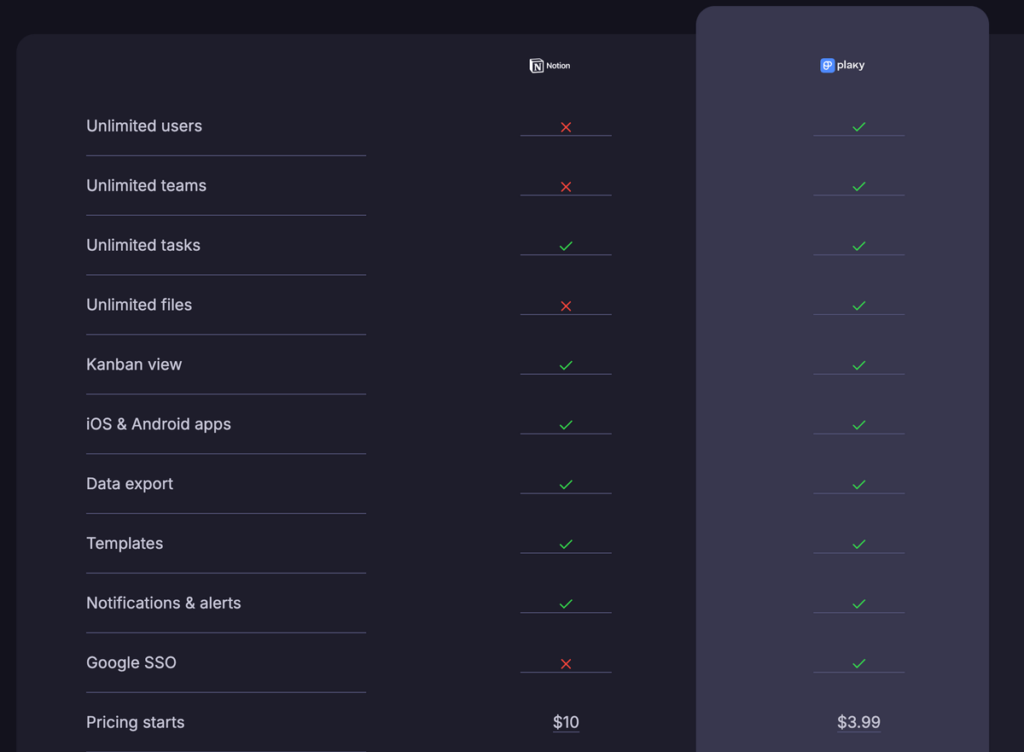
And if that weren’t enough, Plaky also provides 24/7 world-class customer support to all its users, including those on the free plan.
In contrast, Notion offers this service starting from the Plus plan and upwards.
Pricing
Finally, there’s a remarkable difference between Notion and Plaky as far as their pricing goes.
While Notion has a free plan, it comes with serious limitations that make it a less-than-attractive option for teams with 2+ members.
Users may inevitably have to opt for one of its paid plans, which aren’t so budget-friendly since the cheapest one starts at $10/user/month.
On the other hand, Plaky’s paid plans are exceptionally affordable and offer fantastic value.
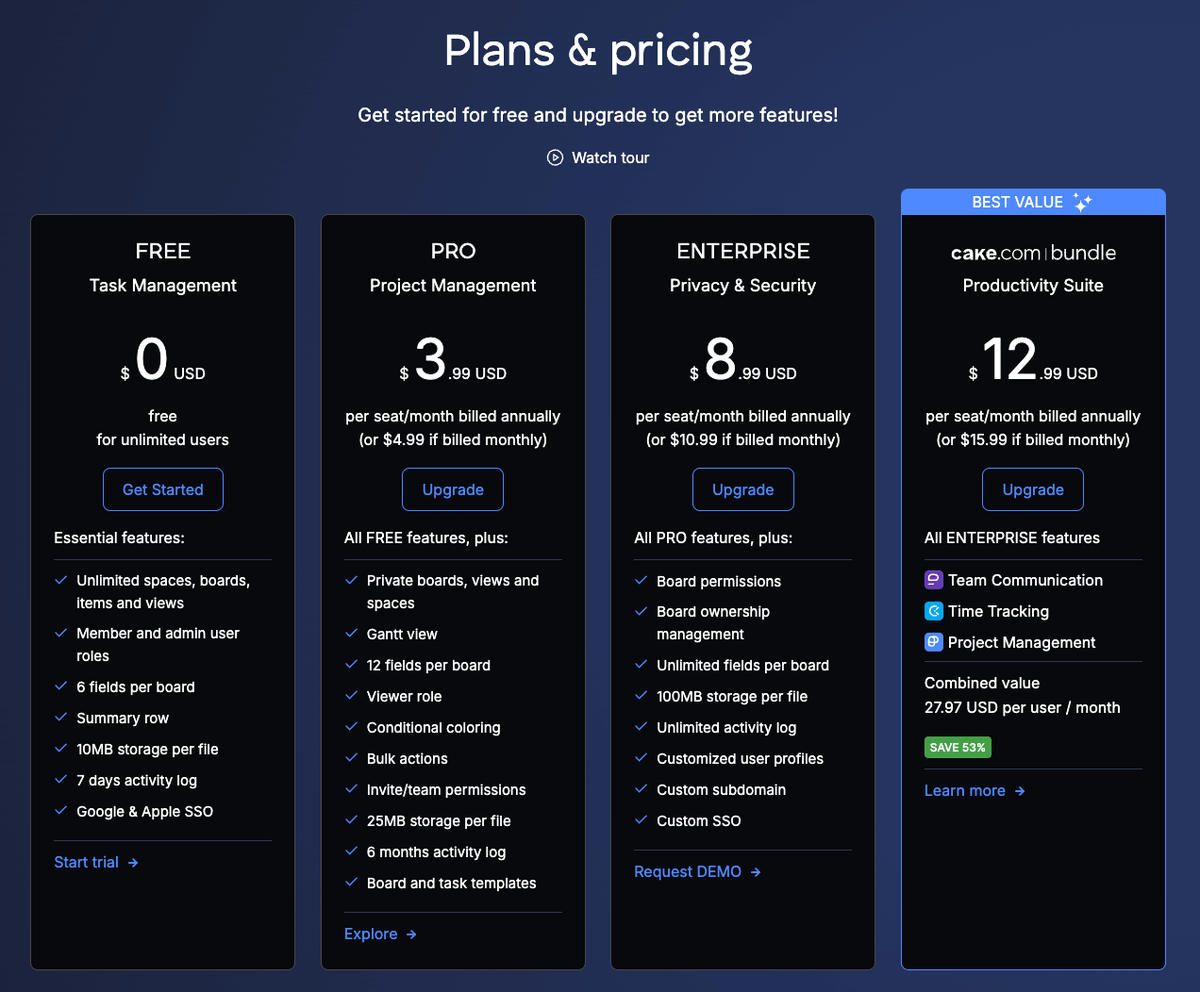
Plaky Pro and Enterprise plans encompass all the features available in the free version — and provide some major upgrades, including:
- Larger file size cap (up to 100 MB per file),
- Additional or unlimited custom fields,
- Additional board views and user groups,
- Extended activity log history,
- Advanced board and workspace permissions, and
- Additional security options.
But how much would you save if you opted for Plaky instead of Notion? Here’s how much you’d have to pay each billing cycle for their paid plans based on your team size.
| Team size | Plaky Pro | Plaky Enterprise | Notion Plus | Notion Business |
|---|---|---|---|---|
| 10 | $39.9 | $89.9 | $100 | $150 |
| 50 | $199.5 | $449.5 | $500 | $750 |
| 100 | $399 | $899 | $1000 | $1,500 |
Notion stands out as a versatile platform that serves various purposes, such as note-taking, project management, and knowledge organization, and offers several paid plans to meet different user requirements.
However, Notion’s steep learning curve and pricing can easily deter users and prompt them to look for more affordable and overall more user-friendly options.
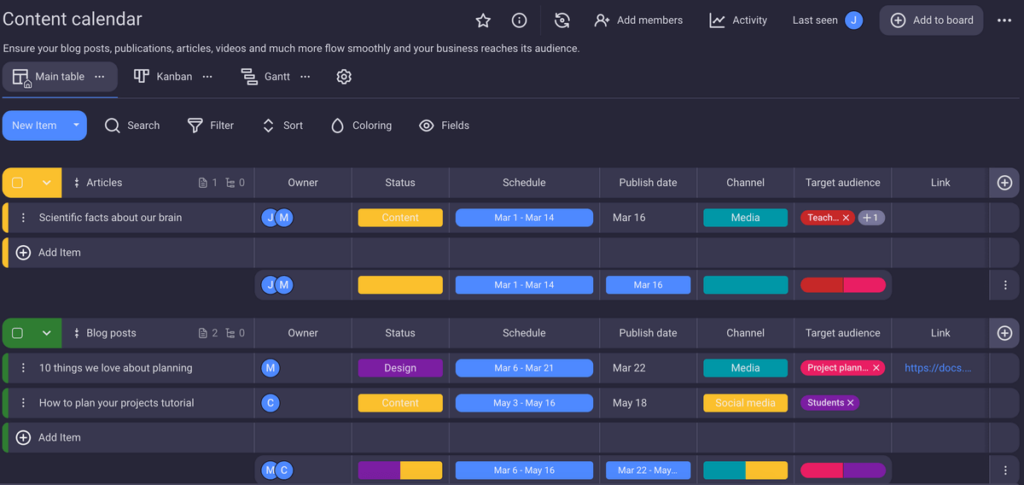
As one of Notion’s best alternatives, Plaky shines as a straightforward, flexible, and budget-friendly project management tool.
Offering an extensive feature set even in its free plan, Plaky is a cost-effective choice that caters to teams of all sizes and across many different industries.
Eager to streamline work processes and maximize your savings? Sign up for Plaky’s free account today.
 Plaky Resources
Plaky Resources 

